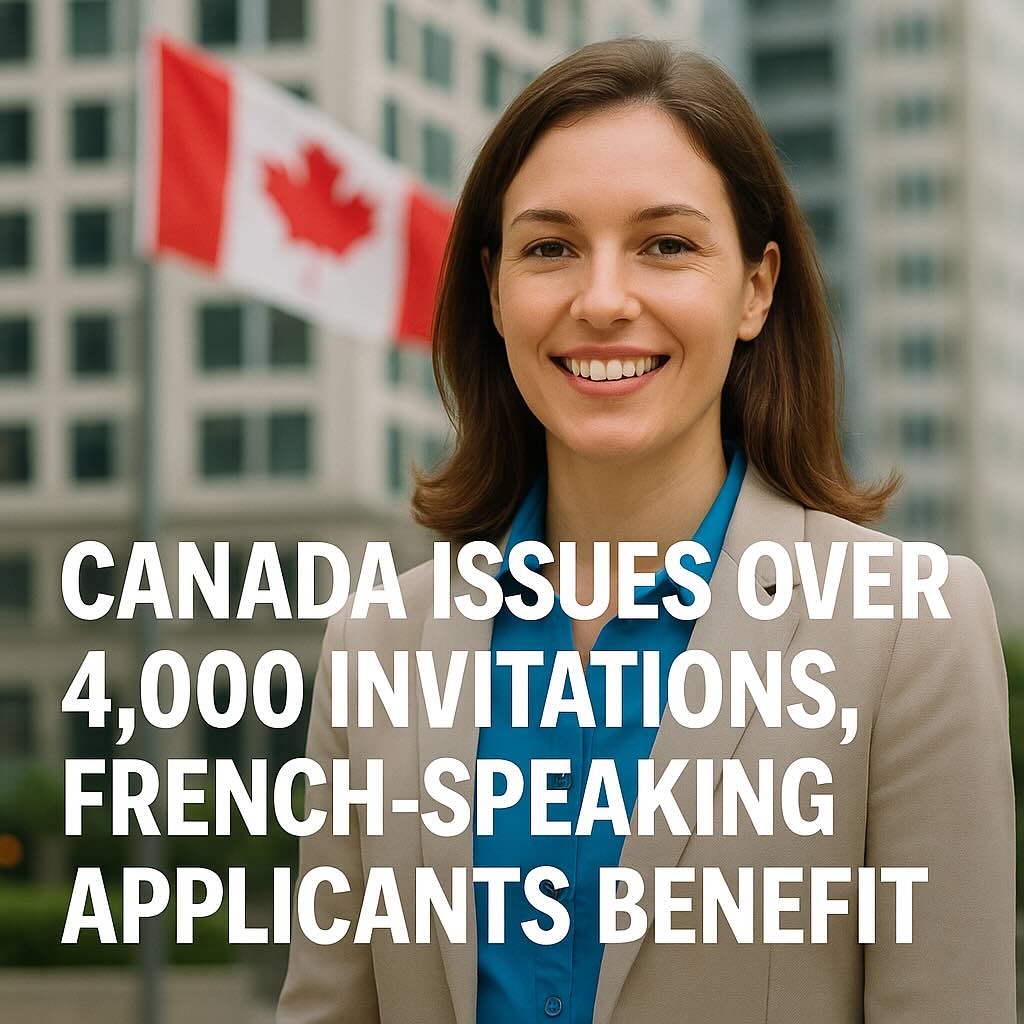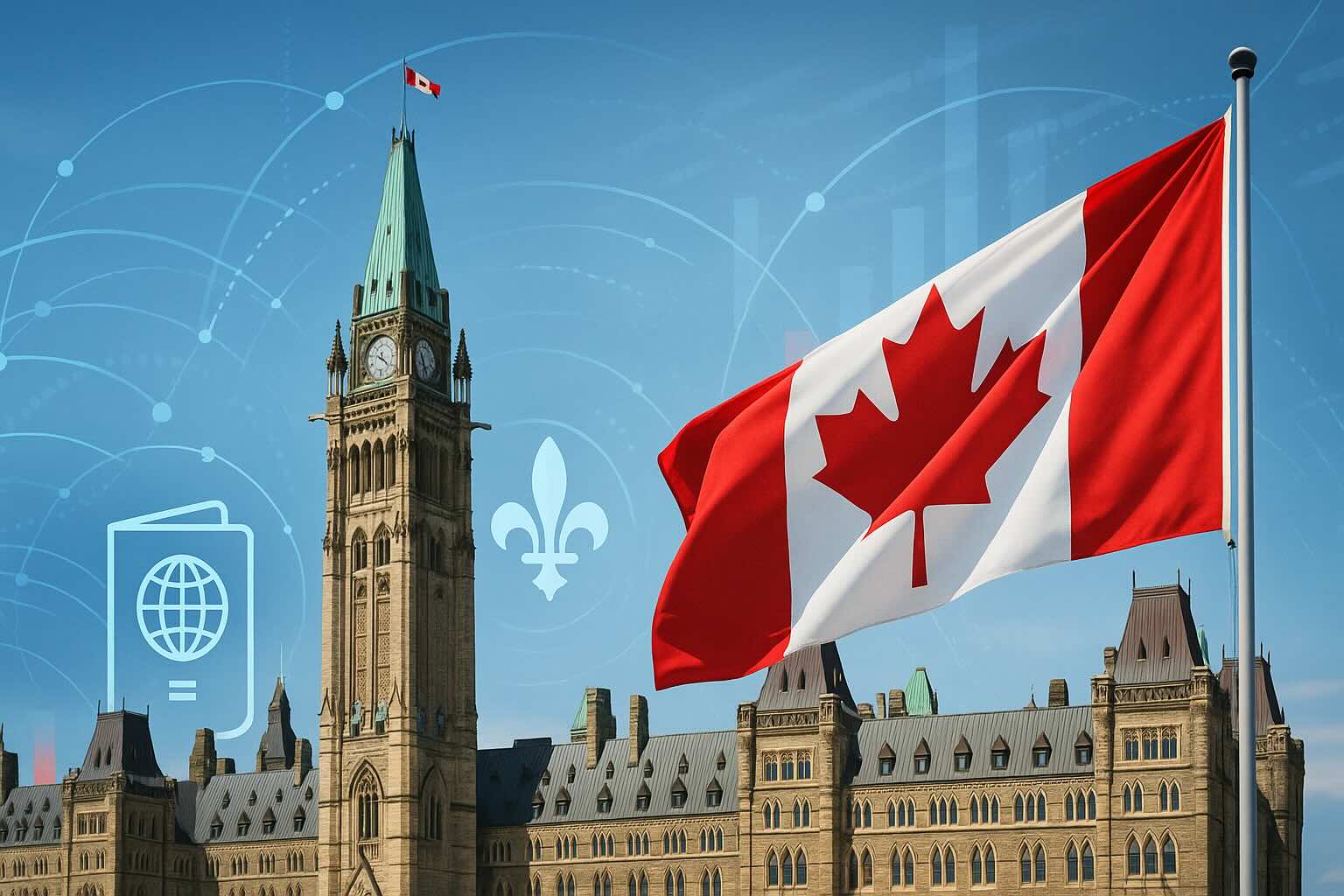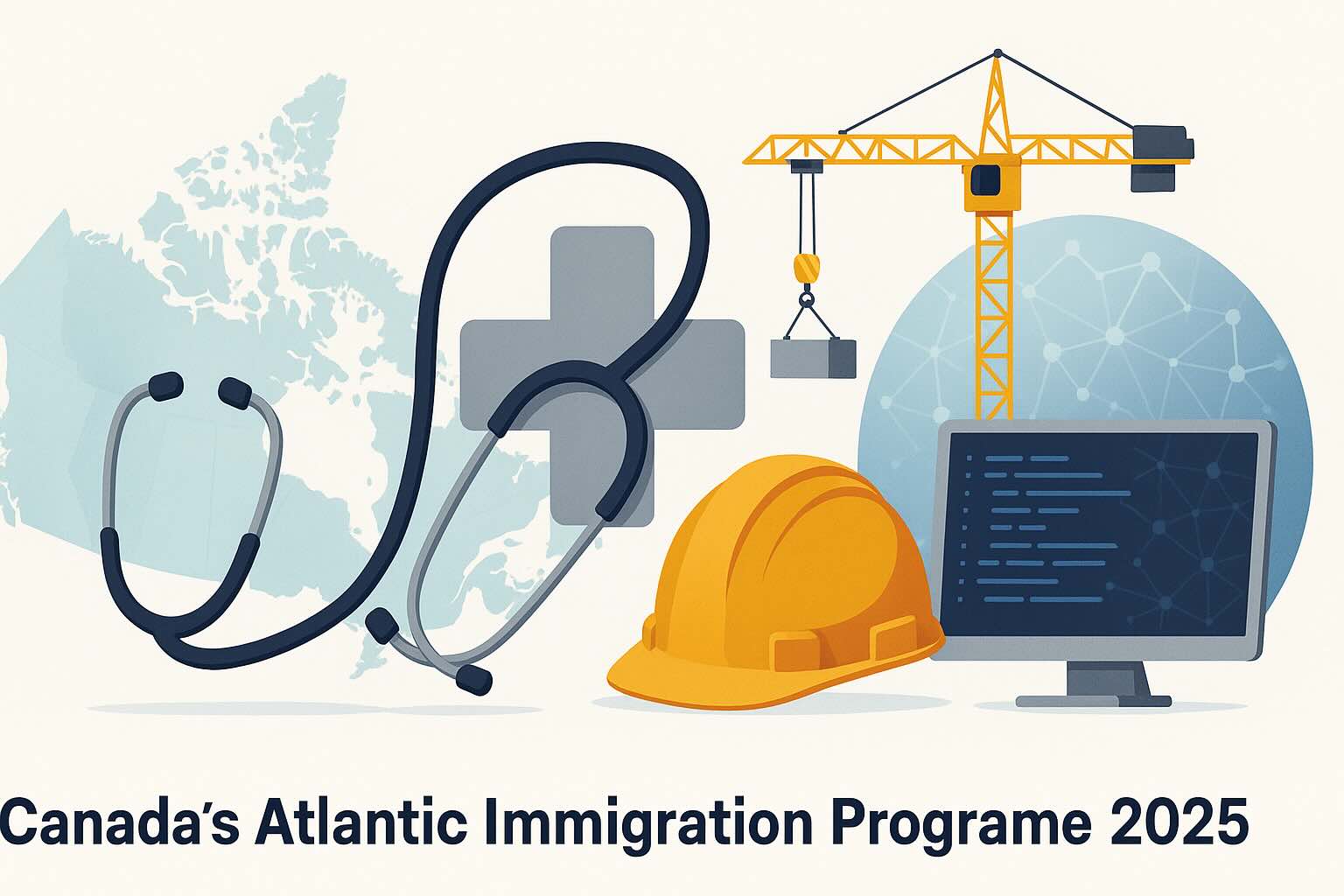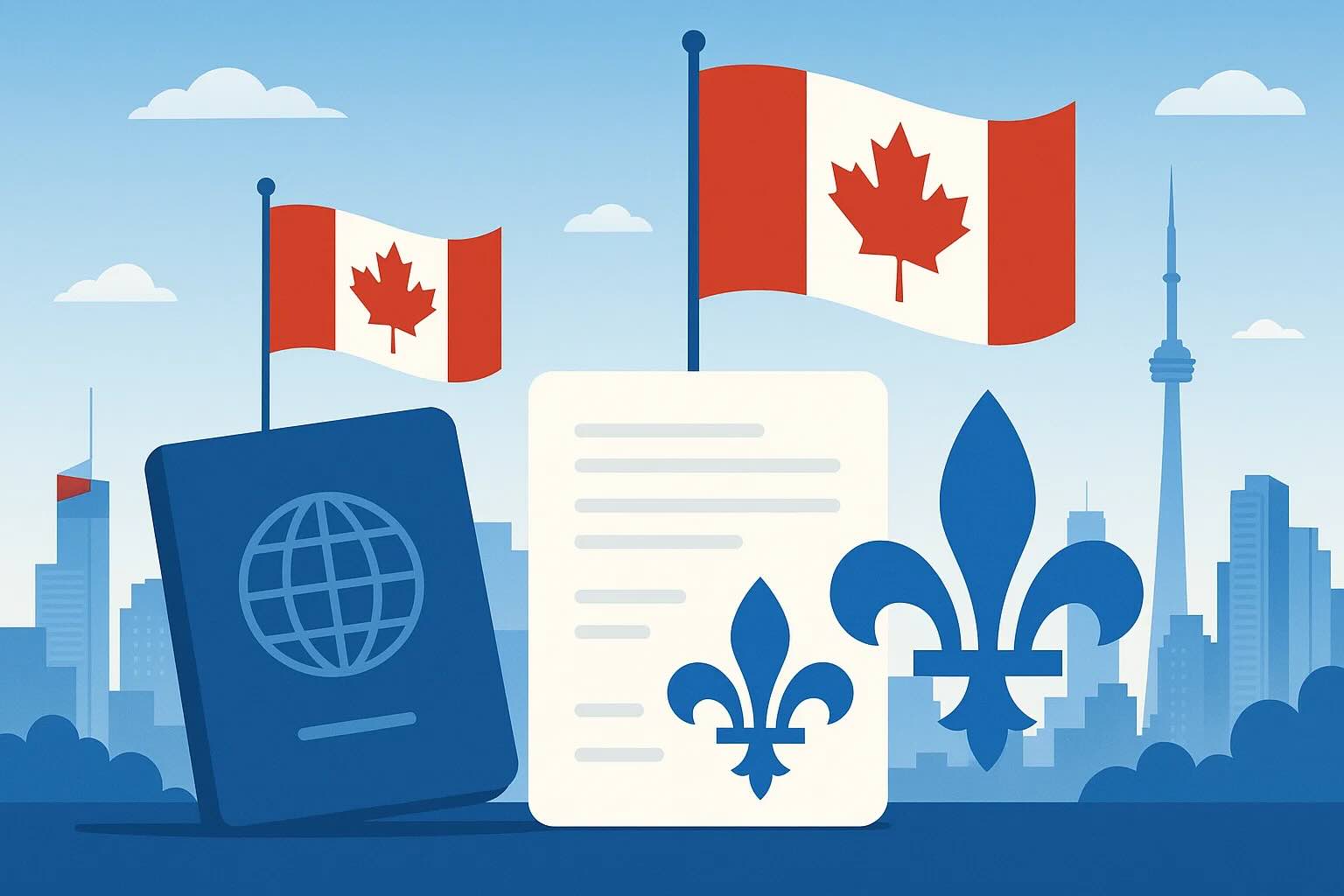
Canada to Simplify Graduate Study Permit Process in 2026, Removing Provincial Attestation Requirement
Immigration, Refugees and Citizenship Canada (IRCC) has announced that, effective January 1, 2026, international master’s and doctoral students will no longer need to provide a Provincial or Territorial Attestation Letter (PAL/TAL) when applying for a study permit. The policy aims to simplify the application process, maintain the two-week fast-track for doctoral students, and remove all limits on the number of eligible applicants. Qualified students may also include their family members in their applications. The change is expected to further strengthen Canada’s position as a global leader in higher education and research.
11/13/2025

Canada Holds Third-Largest Express Entry Draw of 2025, Issuing 6,000 ITAs to French-Speaking Candidates
Immigration, Refugees and Citizenship Canada (IRCC) conducted the third-largest Express Entry draw of 2025 on October 29, issuing 6,000 Invitations to Apply (ITAs) to candidates with French-language proficiency. The minimum Comprehensive Ranking System (CRS) score required for this draw was 416. This result highlights IRCC’s continued commitment to supporting French-speaking communities across Canada through its language-focused immigration policies. So far, French-speaking candidates have received the most invitations this year, underscoring the federal government’s priority on promoting bilingualism and balanced demographic growth.
10/30/2025

Canada Proposes Bill C-12 to Overhaul Immigration Processing, Potentially Affecting Start-Up Visa Applications
Immigration, Refugees and Citizenship Canada (IRCC) has introduced Bill C-12, aiming to modernize and strengthen the management of Canada’s immigration system while addressing long-standing backlogs. If passed, the bill would grant the Minister expanded authority to pause or terminate the processing of certain immigration categories. Analysts suggest that the Start-Up Visa (SUV) program — already facing significant application backlogs — could be among the most directly affected, particularly for applicants supported by designated business incubators that fail to comply with Ministerial Instructions (MI72).
10/23/2025

IRCC Issues Over 4,000 Invitations, Benefiting French-Language Category Applicants
Immigration, Refugees and Citizenship Canada (IRCC) issued 4,500 invitations to apply (ITAs) through the Express Entry system on October 6, 2025, specifically targeting candidates with French-language proficiency. This marks the second draw in October and one of the largest French-language category draws this year. To date, the Express Entry system has issued over 70,000 invitations in 2025, with French-language category candidates receiving the highest number of invitations.
10/07/2025

Canada's Latest Express Entry Draw Issues 4,500 Invitations to French-Speaking Candidates
Immigration, Refugees and Citizenship Canada (IRCC) held its third Express Entry draw of the week on September 4, 2025, specifically inviting candidates with French-language proficiency. A total of 4,500 Invitations to Apply (ITA) were issued in this round, with a minimum Comprehensive Ranking System (CRS) score requirement of 446. This draw highlights the Canadian immigration system's continued emphasis on supporting Francophone communities and attracting candidates with specific skills.
09/05/2025

Yukon's Immigration Program Gets Boost with Increased 2025 Nomination Quota
The Government of Yukon announced on August 21, 2025, that it has successfully secured an additional 67 nomination allocations for its Yukon Nominee Program (YNP), raising the total for the year to 282. The boost follows sustained advocacy on behalf of local employers after initial federal cuts to the program. As a direct result, the territory will issue 80 new Invitations to Apply in August, prioritizing candidates with established ties to the Yukon, including local work experience and graduates from its institutions.
08/25/2025

Canada's Atlantic Immigration Program: 2025 Updates See Provinces Prioritize Key Sectors and Occupations
In 2025, Canada's Atlantic Immigration Program (AIP) is entering a new strategic phase due to adjusted federal immigration allocations. To manage reduced quotas, the four Atlantic provinces are concentrating their resources on key sectors vital to their local economies. Healthcare, construction, and information technology have become focal points for attracting talent. This report provides an in-depth analysis of the latest priority sectors and occupations for each province, examines the alternative pathways available in New Brunswick following its AIP pause, and offers authoritative guidance for applicants planning to immigrate through this program in 2025.
08/21/2025

Canada's Latest Express Entry Draw Targets French-Speaking Talent, Inviting 2,500 Candidates
Immigration, Refugees and Citizenship Canada (IRCC) held its third Express Entry draw of the month on August 8, 2025, once again issuing invitations to candidates with French-language proficiency. A total of 2,500 candidates received an Invitation to Apply (ITA) in this round, with a minimum Comprehensive Ranking System (CRS) score of 481. This draw again highlights the Canadian immigration system's continued emphasis on candidates with specific skills and language abilities, particularly the demand for French speakers.
08/11/2025

Focusing on Labour Market Needs: Newfoundland and Labrador's Latest Immigration Draw Targets 359 Candidates
On July 10, 2025, Newfoundland and Labrador's Office of Immigration and Multiculturalism (OIM) issued 359 Invitations to Apply (ITAs) for provincial immigration to foreign nationals. Spanning both the Provincial Nominee Program (NLPNP) and the Atlantic Immigration Program (AIP), this draw explicitly requires candidates to hold a job or job offer from a local employer and prioritizes professionals in key fields like healthcare, information technology (ICT), and aquaculture to meet the province's urgent labour market needs.
07/25/2025

QS 2026 Best Student Cities Revealed: Four Canadian Cities in Top 100
Global higher education analyst Quacquarelli Symonds (QS) has recently released its 2026 Best Student Cities ranking. Four Canadian cities—Montreal, Toronto, Vancouver, and Ottawa—have secured spots in the top 100. While these cities are lauded for their excellent student feedback, diversity, and university quality, their overall scores are weighed down by consistently low marks in affordability. Notably, all four cities have seen a significant drop in their rankings compared to the previous year. This trend not only reflects a broader challenge faced by North American cities but also introduces new factors for international students to consider when planning their education in Canada.
07/20/2025